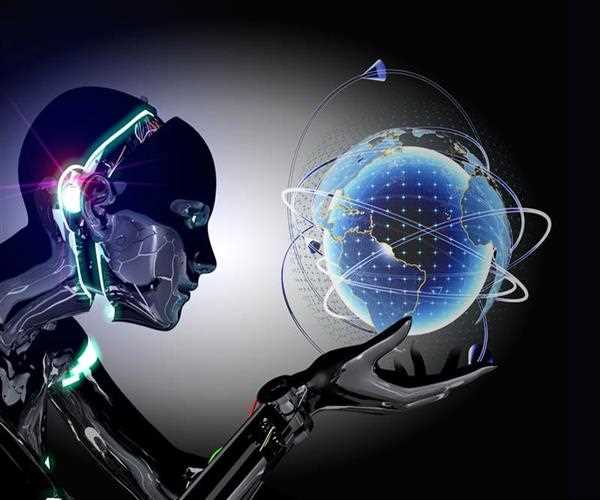
11-May-2023 , Updated on 5/11/2023 2:22:01 AM
What happen if human reach to maximum intelligence level?
As human beings, we have been striving to improve our intelligence and cognitive abilities since the beginning of our existence. From the development of language and writing to the advent of the internet and artificial intelligence, we have made remarkable strides in expanding our understanding of the world around us. But what would happen if we were to reach our full intellectual potential? In this view, we will explore the potential implications of such an event.
Firstly, let us define what we mean by "full intelligence." It's important to note that there is no universally agreed-upon definition of intelligence, and different theories exist on how to measure it. For the purposes of this article, we will define full intelligence as the maximum cognitive abilities that a human being can possess, including the ability to process information, analyze complex problems, and make informed decisions.
So, what would happen if we were to reach our full intellectual potential? One potential outcome is that we would be able to solve the most complex problems facing our society. From climate change to global pandemics, our world faces numerous challenges that require high levels of intelligence to solve. With our full cognitive abilities, we would be better equipped to understand the intricacies of these issues and develop effective solutions.
Additionally, reaching our full intellectual potential could lead to advancements in technology and scientific understanding. With greater cognitive abilities, we could unlock new discoveries and develop innovations that were previously unimaginable. For example, we could develop new forms of energy that are sustainable and environmentally friendly, or create medical treatments that are more effective and efficient.
Another potential outcome of reaching our full intellectual potential is that we would be better equipped to understand and appreciate the world around us. With a greater understanding of the natural world, we could develop a deeper appreciation for the interconnectedness of all life on Earth and take steps to preserve and protect it.
However, there are also potential drawbacks to consider. One concern is that reaching our full intellectual potential could lead to a widening gap between the most intelligent members of society and the rest of the population. If only a small subset of the population possess these abilities, it could create a significant power imbalance and exacerbate existing social inequalities.
Additionally, there is the possibility that increased intelligence could lead to a loss of emotional and social intelligence. If we were to focus solely on developing our cognitive abilities, we could neglect the development of our emotional and social skills, which are essential for building healthy relationships and navigating the complexities of the human experience.
Another concern is that reaching our full intellectual potential could lead to a sense of meaninglessness or existential crisis. If we were to fully understand the workings of the universe and our place in it, it could raise questions about the purpose and meaning of our existence.
It's also important to consider the ethical implications of reaching our full intellectual potential. With greater intelligence, we would have the ability to manipulate and control the world around us to an unprecedented degree. This could lead to moral dilemmas and challenges to our ethical framework.
There are two issues:
You will have to suffer more fools the more intelligent you are. The most terrible of these people are the individuals who envision they are keener when they are clearly not, or the individuals who impugn schooling and insight as irrelevant on the grounds that they need one or both being regarded as arrogant. Even with the best of intentions, it is a constant diplomatic battle that frequently fails.
First and foremost, this individual would never find comfort in the people around him. To learn from what he knows and how he got to know all of those things in the first place, everyone will continue to follow him.
To attain infinite knowledge, you must investigate the entire planet Earth, the lower heaven, and everything in their vicinity. All of this information either gets stored in your head or just comes out of your mouth whenever someone asks for it.
Envision the number of things that are switching consistently up the world — You need to keep yourself refreshed with any change. No one but God can do that!
Envision being familiar with every one of the agonies and distresses all over the planet — Might you at any point make due for over 2 days ?
This lovely quote comes into play at that point: He who expands his knowledge also expands his suffering.
That quote above provides a straightforward response to your inquiry—but only if you comprehend its meaning.
In conclusion, reaching our full intellectual potential could have both positive and negative implications. While it could lead to advancements in technology, scientific understanding, and problem-solving, it could also lead to a widening power imbalance, a loss of emotional and social intelligence, and ethical dilemmas. As we continue to strive towards expanding our cognitive abilities, it's important to consider these potential outcomes and take steps to mitigate any negative effects. Ultimately, it will be up to us to decide how we use our intelligence to shape the future of our world.

SEO and Content Writer
I am Drishan vig. I used to write blogs, articles, and stories in a way that entices the audience. I assure you that consistency, style, and tone must be met while writing the content. Working with the clients like bfc, varthana, ITC hotels, indusind, mumpa, mollydolly etc. has made me realized that writing content is not enough but doing seo is the first thing for it.
Join Our Newsletter
Subscribe to our newsletter to receive emails about new views posts, releases and updates.
Copyright 2010 - 2026 MindStick Software Pvt. Ltd. All Rights Reserved Privacy Policy | Terms & Conditions | Cookie Policy